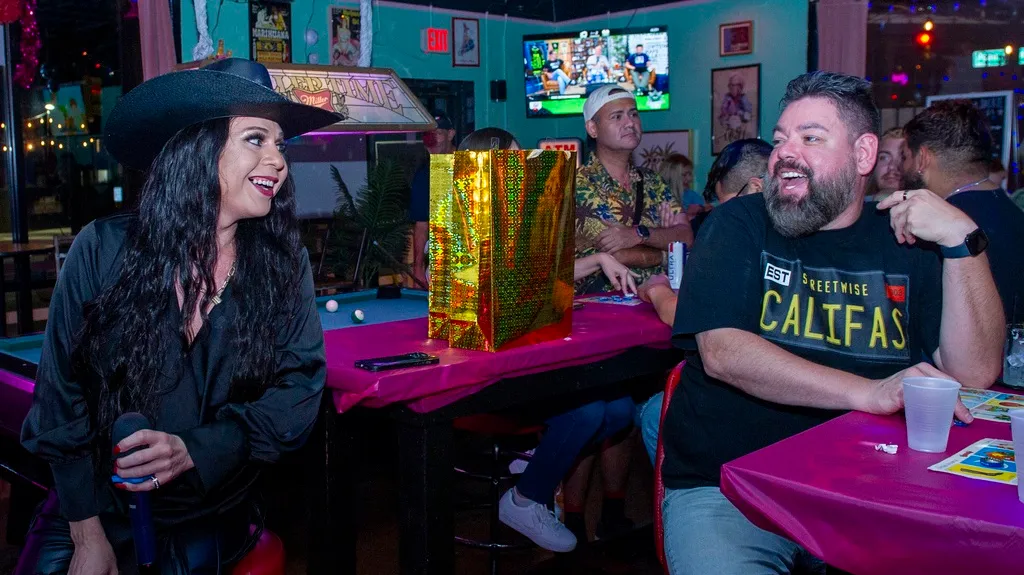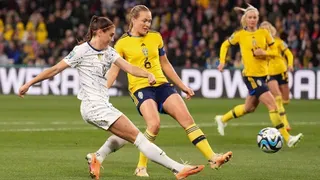November 6, 2011
In the Occupy Fort Lauderdale Movement, There's a Voice for Everyone
Kevin Mark Kline READ TIME: 3 MIN.
It was a rainy Saturday afternoon in October when hundreds of people converged on Stranahan Park to tell their stories. They wanted to feel like they belonged - they wanted to be heard.
From all walks of life they came: gay, straight, black, white, young, old and everyone in between attended. And so it began.
The Occupy Fort Lauderdale movement was officially formed.
Occupy Fort Lauderdale is the new local faction of the worldwide Occupy movement. Occupy aims to foster a truly democratic dialogue. It has no official leaders, prefers tents and concrete to lavish hotels and banquet halls, and bases its every move on the consensus of its participants.
"It's all about solidarity. About coming together," says Jessica Wilson, a 23 year-old from Sunrise. "We talk about the issues that matter most to us and decide what our next move will be."
The group is comprised of a general assembly, which meets every Sunday at 5:30 p.m. in Bubier Park, and smaller "working groups"- each with individual "missions." Occupy Fort Lauderdale strives to not only be an outlet for individuals to express their frustrations with corporate domination of local, state and national governments, but also to be a mouthpiece for anyone and everyone whom is a part of the dwindling middle class.
"It doesn't matter whether you're straight, gay, black, white, Republican or Democrat... as long as you allow everyone to have their opinions and stand up for your own, you're a part of Occupy Fort Lauderdale," says 25 year-old Michael Howson.
Howson is both black and gay but says his status, as a gay minority, is hardly what drew him to the movement. Rather, it was his disdain over the controversial recent execution of convicted murderer Troy Davis which sparked his initial interest in the group.
"To see that such an injustice was done and that the Supreme Court of the United States allowed an innocent man to die made me absolutely enraged," he says.
Davis was on death row for over 20 years in Georgia for allegedly killing an off duty police officer and was executed on Sept. 21. The case relied almost solely on the testimony of eyewitnesses and came to the forefront of national media attention as seven of the nine eyewitnesses recanted their testimony alleging coercion by local law enforcement officials.
"It made me mad as hell," Howson says. "And just as I became entrenched in the case and my anger over the ignorance of our justice system and government, I saw an invite for an Occupy Fort Lauderdale meeting on Facebook and decided to go."
His sense of belonging was immediate.
"The people were so passionate that they were camping out in protest against corporations who spend money to buy our elected representatives who, in turn, do only what's in the best interest of big business," he says.
"Their message resonated with me because I was so disenfranchised after the [Davis] execution. Watching our government allow such an injustice to occur made me wonder what kind of people we have as elected officials."
Still, despite his initial motivations for joining the movement having little to do with his being both gay and black, Howson concedes that certain LGBT issues are amongst his top concerns.
"Aside from corporate greed corrupting our government, I am very passionate about issues like gay marriage and gay adoption," he says.
Similarly, Wilson sees a strong parallel between the message of the movement and the struggles of the LGBT community.
"The [LGBT] community continues to be marginalized on a regular basis," she says. "It's not in the best interests of mega corporations to give power to marginalized groups, so they continue to push them off to the side."
The culprits, according to Wilson, are nothing new to politics. Money and special interests, she says, play the biggest role in the oppression of LGBT people and rights.
"It doesn't make corporations more money to help the LGBT community, so they're not going to do it and are inherently resisting doing so."
In the end, both Wilson and Howson contend that there is a place for everyone who struggles as a result of the current state of the economy, including those in the LGBT community.
"Regardless of anything, we're all Americans," says Howson. "We all have a voice. We just need to start using it. That's what the movement is all about - it's a place for everyone."
More information on Occupy Fort Lauderdale can be found online at Occupyfortlauderdale.org. Michael Anguille, the author of this article, can be contacted via E-mail at [email protected] .





